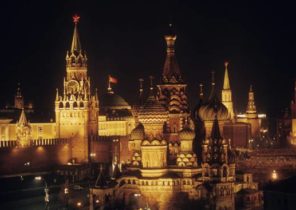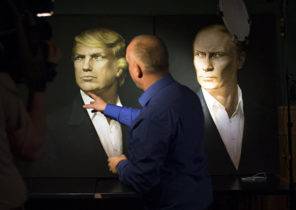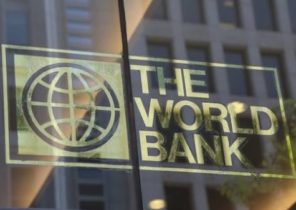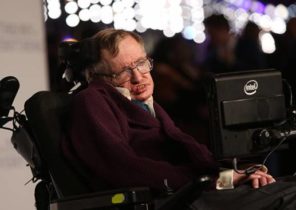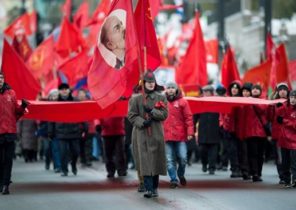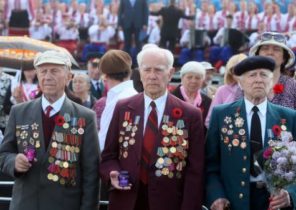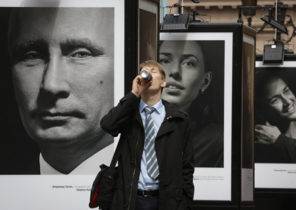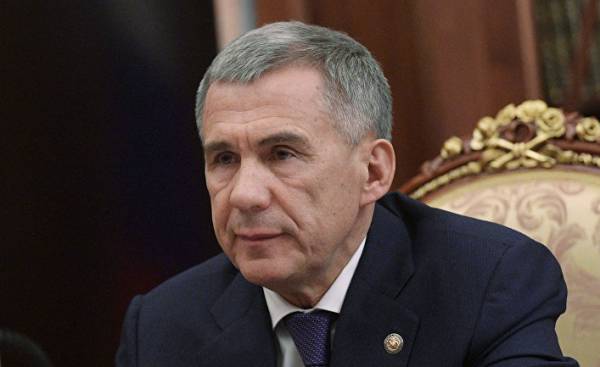
Property in Russia is concentrated in the hands of a small group of people, but the discussion of this issue is a taboo subject on state television channels.
“In programs all the time talking about the hated 1990-ies and how at that time there was wealth inequality. But not talking about what happened in this Millennium, because they know that wealth inequality in the period of presidency of Vladimir Putin has increased significantly compared to the times of Boris Yeltsin”.
So says journalist and former Secretary of the Russian Union of journalists Igor Yakovenko, who for many years showed and created news and analytic programs on state television channels. He also has his own Internet blog.
“I don’t remember a single show where I discussed this topic,” says Yakovenko, referring to the many talk shows that public channels.
If economic issues are discussed, that, according to Yakovenko, only from the point of view that their origin lies in the 1990-ies, when for economic policy, said the liberals.
Began his career as a sociologist, Yakovenko now works as a journalist. In the early 1990-ies he was a Deputy of the State Duma of the first convocation.
Income inequality people in Russia see it. According to Yakovenko, they take it as something normal.
“Attitude can be formulated as follows: “this is our life, this power, and this situation.”
He says that in Russia very few people who do not understand how the lives of a group of people in power and the elite.
“Although do not know the details, the situation is known.”
The events in the Russian Internet is following the “absolute minority”
Forbes magazine, which regularly compiles ratings of billionaires, published in may, the rating of “200 richest businessmen of Russia”.
At the top of the list is Leonid Mikhelson, whose fortune is 18.4 billion dollars. In second place is Alexei Mordashov, the controlling the amounts of $ 17.5 billion. In third place is Vladimir Lisin, the purse which is of 16.1 billion dollars. In fourth place in the ranking Gennady Timchenko, a property which is $ 16 billion. From Timchenko is Finnish passport. He became a billionaire during the presidency of Putin. Friends are Putin and the Rotenberg brothers. Arkady Rotenberg is in 39th place in the ranking. His property is estimated at $ 2.6 billion. Boris Rotenberg, who also has a Finnish passport, got out at 94 with a round sum of exactly one billion dollars.
Data about the rich and their capital is enough, but, according to Igor Yakovenko, the number of readers of Forbes magazine, and Internet users cannot be compared with huge audience of the state television channels.
Timchenko and Rotenberg are familiar to those Russians who are friends with the Internet.
People get their information from the Internet in Russia are the absolute minority. Yakovenko believes that only about 5% of Russian citizens know who Gennady Timchenko.
“Between television audiences and Internet users — the real divide. Internet users get information on the power of the rich and corruption,” — says Yakovenko.
On the Internet a lot of information spreads Alexei Navalny, and not only him. Others are also writing on this topic — for example, Andrei Piontkovsky.
“On the other hand, know all about the horrors of the time of Yeltsin because they say all the time on TV. Also constantly heard the names of Khodorkovsky, Berezovsky, Gusinsky, although none of them is no longer in Russia, but Berezovsky was no longer alive”.
Mikhail Khodorkovsky headed the list of Russia’s richest men before he was arrested in 2003 and jailed. However, he lost his company “YUKOS”, the head of which he was a result of the mortgage auctions of the Yeltsin era.
Boris Berezovsky was the first Russian in the ranking of billionaires magazine Forbes.
Vladimir Gusinsky fled Russia in the early period of Putin’s presidency in the summer of 2000. Gusinsky sold them based independent TV channel NTV, the state gas giant Gazprom.
Along with his poverty, the Russians see every day luxury in its various forms.
“Luxury, for example, sweeps past them in expensive cars, which have flashing lights that give them the right of free journey,” says Igor Yakovenko.
“Meeting with them is common, which is outrageous, but does not lead to any action. Emotions overflow, but this is where it ends”.
This powerlessness Yaroshenko explains effective use of information warfare techniques in the period of Putin’s presidency.
“People cheated, they inspire confidence in the fact that the same everywhere”.
“People were forced to think that Western institutions — democracy, the tripartite separation of powers, freedom of the press — just hype everywhere, as well as in Russia.
Everywhere the same system, and everywhere are equally bad.
Yakovenko draws a picture, using the anthropological term “cargo cult” in which there is the concept of “good” that comes with foreigners. It is based on a meeting with representatives of the technologically more advanced society. The Russian version of the cargo cult consists in the prevention of protests.
“This is necessary in order to be perceived a visible inequality and all the shamelessness of the government’s actions so that the situation did not go to real action.”
Understanding people have, says Yakovenko. In Russia it is impossible to live not knowing what was happening.
“Therefore created the so-called “controlt cargo”.
The average income of the Minister is 435 average pensions
To the peculiarities of Russia is the exclusive wealth managers.
Policymakers and officials have to show their income and property. In this hidden world you can look.
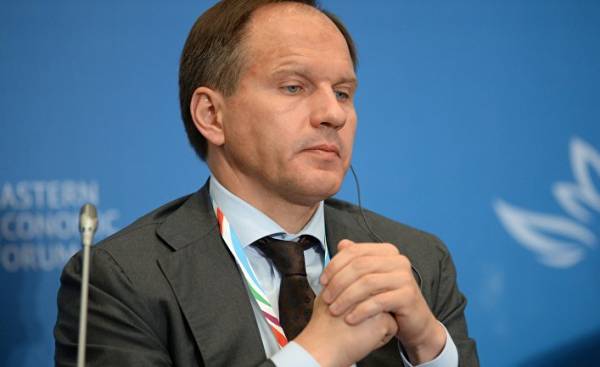 © RIA Novosti, Alexander Kryazhev | go to fotomancer of the Russian Federation for the North Caucasus Lev Kuznetsov
© RIA Novosti, Alexander Kryazhev | go to fotomancer of the Russian Federation for the North Caucasus Lev Kuznetsov
According to recent data, the richest Minister is Minister for North Caucasus Affairs Lev Kuznetsov, who has a house and an apartment in France. Its revenues amount to 582 million rubles.
International radio station “Freedom” have fun counting that the average income of the Minister is five million rubles a month. This is equal to 143 average monthly wages and pensions 435.
According to recent reports, the Governor of Leningrad region Alexander Drozdenko is the third in the list of most prosperous regional leaders. Own revenues of the Governor made last year, 5.9 million rubles, but the income of his wife exceeded 103 million.
Yes in Russia in General the wives of the heads of a very high income.
A brilliant example is located on the first place in the ranking of incomes of regional leaders, Tatarstan President Rustam Minnikhanov, who earned only 7.5 million rubles, while his wife pumped $ 2 billion 350 million rubles.
Igor Yakovenko is a clear explanation of the wealth of the country’s leadership.
“To put it bluntly, the rich are the only officials in the service of the state. This is due to the fundamental features of modern Russian systems, which have historical roots.”
He refers to the magazine “Frontiers”, which was released in 1996-2001 and whose editor was himself. Magazine high class already published a series of articles about the Russian system.
The spirit of today Yakovenko shows for example that one of the authors was academician Yuri Pivovarov. Now he is being harassed.
“One of the peculiarities of the Russian system is the merging of power and property. The system was part of the Soviet Union, now it is revived.”
In practice, this means that the majority of ownership is in the hands of the state or is actually in his hands, as her owner is acting in the interests of the state.
“Technically does not matter whether the NTV is a public or private channel. Everyone knows that he is controlled by the state. One is not particularly interested in who owns the First channel. And so it is clear that the nature of the transmission it is the state”.
“There is no difference in that gas giant, Gazprom, is formally a joint stock company, whose shares can be purchased. It is clear that we are talking about the state structure, as in the case of the oil company “Rosneft”.
State the nature of ownership is, according to Yakovenko, one of the features of property in Russia. During the Yeltsin system tried to destroy but failed.
“Another significant part is the corruption. The state nature of ownership and corruption are the basis of functioning of the Russian society, which is Putin’s Russia”.
The roots of this system go even deeper into the past.
“Who will demonstrate independence, condemned”
According to Yakovenko, the suspicious attitude towards private initiative and ownership has always been inherent in Russian society.
The explanation he finds in religion.
“Collegiality” is one of the main principles of Orthodoxy. We are all together. Someone who has shown independence, condemn”.
Collegiality is the cultural justification that private property and private initiative is not respected.
Lack of respect leads, according to Yakovenko, this style of thinking in which all of the state is socially justified and that everything should be public.
“Thus, the state is above the individual, and the person acting on behalf of the state, have the right to make decisions concerning the property. This naturally leads to enrichment. The basis of the whole chain of the problems is the culture.”
Yakovenko focuses on the fact that in the minds of people rooted the myth of the illegality of what was happening in the 1990-ies and the idea of the criminal nature of enrichment.
“Russian society is really diverse, but still dominated by the idea that officials can enrich themselves, but the entrepreneur does not”.
As a result, Russia’s negative attitude to the wealth that resulted from their own labor, creativity or activity than to the property possessed by persons in the service of the state, although the accumulation of this wealth they used the power that gave position.
In the early 2000-ies the accumulation of wealth moved from the private sector in the state. The opinion he justifies the observations which he made, studying the real estate market in Moscow.
Buyers of expensive apartments in the 1990-ies was in Moscow mostly businessmen. Among them were criminals, but were honest businessmen. Still they were all businessmen.
“Independent from the state, entrepreneurs have disappeared from these markets immediately at the beginning of this Millennium. Apartments worth millions of dollars began to buy only people in the public service”.
According to Yakovenko, this group of people was very diverse and were at different levels of the state machinery of power.
As an example, he mentions the major of the Ministry of emergency situations, the fire inspector who received bribes when checking organizations.
The same wealthy were ordinary police officers, the current police and employees of public administration.
Yakovenko recalls an occasion when the Manager of a small rural municipality in the trunk of the vehicle was several billion rubles in dollar terms.
“Putin came to power, private entrepreneurs had ceased to be rich, and officials become richer. This line, which is the consolidation of the state and where the state is everything and people person — nothing”.
The youth feels “the pressure of the concrete ceiling”
Older generations did not respond to an increase in property differences, but with the younger generation not the case.
Born and Wroclawskie in the period of Putin don’t know what it was Soviet times and the 1990s, and a link to this time not has the desired effect.
“The young feel the pressure of the concrete ceiling and reacting to inequality is sharper. They don’t understand why the structure of society is what it is. They do not understand why the son of an oligarch there are opportunities for advancement, and an ordinary young man can’t succeed in work.”
Yakovenko alleges, how many young people participated March 26 in a demonstration organized by Alexei Navalny, which raised the question of the ownership of Dmitry Medvedev.
Now there have been demonstrations because of the vast program of demolition of five-story building. Following protests against corruption scheduled for June 12 — Russia Day.
On this day in 1990 adopted the Declaration of sovereignty of Russia. On the same day in 1991 was the first presidential election in Russia, won by Boris Yeltsin.
“I think that young people will take part in the June protests. Young people are keenly aware of injustice, because it took away the prospects of the future.”
